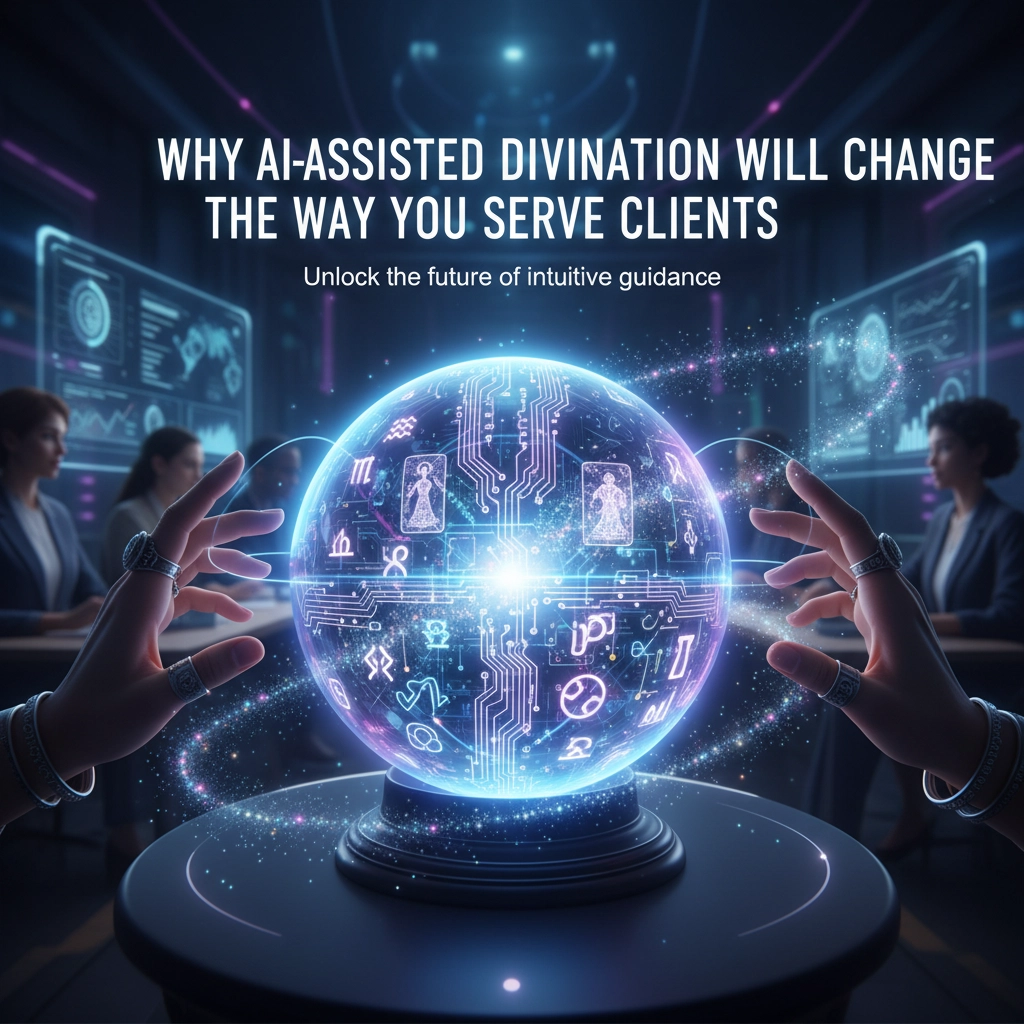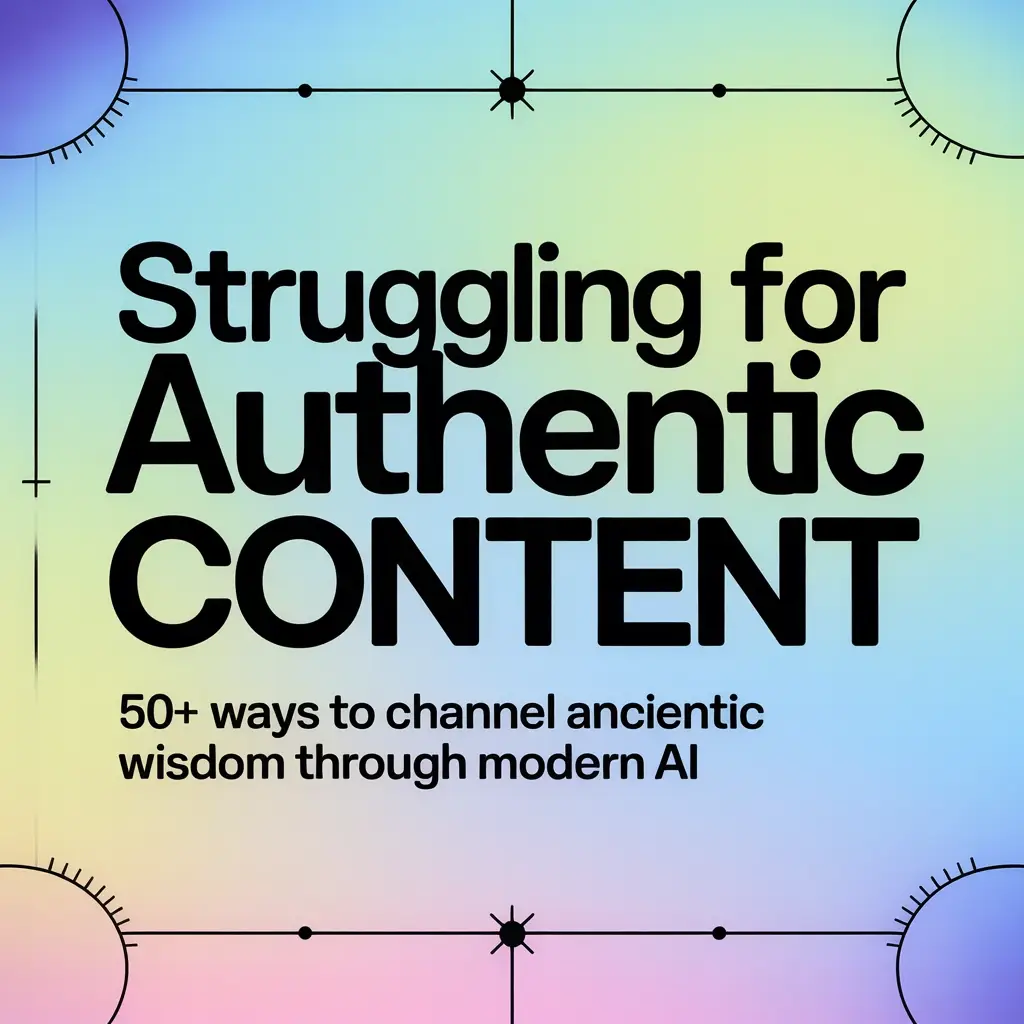Traditional divination services operate within time and location constraints. AI-assisted divination removes these limitations. The technology transforms how practitioners deliver spiritual guidance to clients.
Immediate Access Replaces Appointment Scheduling
AI-powered tarot and astrology tools provide instant consultations. Clients access readings without booking appointments or traveling to specific locations. The system operates continuously, serving multiple users simultaneously.
Professional-grade AI tarot assistants simulate traditional reading processes. These tools maintain interpretation accuracy while offering immediate availability. Clients receive guidance when needed most, not when schedules align.
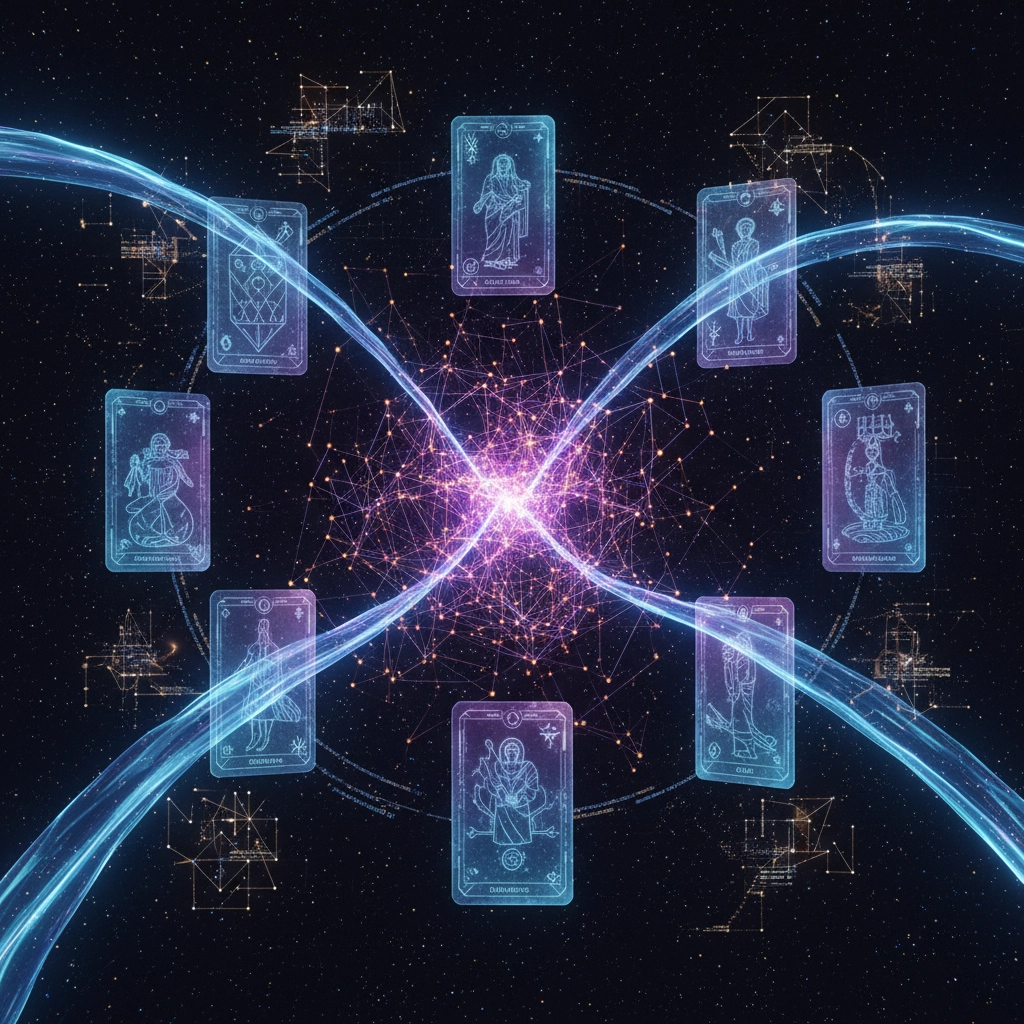
Privacy Barriers Dissolve
Many clients hesitate to discuss personal matters face-to-face. AI systems eliminate this concern. Users explore sensitive questions without judgment or embarrassment.
The technology provides private consultation environments. Clients ask deeper questions about relationships, career changes, or personal struggles. This privacy increase leads to more honest inquiries and meaningful guidance sessions.
Multi-Cultural Integration Expands Service Range
AI-assisted divination incorporates various cultural traditions simultaneously. Systems blend Western astrology, Vedic practices, Chinese BaZi fortune-telling, and other methodologies.
Practitioners serve diverse client populations without extensive training in multiple traditions. The AI handles cultural context and interpretation variations. This expansion allows single practitioners to offer comprehensive multicultural services.

Documentation and Pattern Recognition Improve
AI systems store and analyze consultation histories. The technology identifies patterns across multiple readings for individual clients. This data tracking provides progression insights impossible with traditional methods.
Clients receive documented guidance they can reference later. The system tracks recurring themes and suggests timing considerations. This comprehensive analysis approach surpasses human memory limitations.
Service Scaling Becomes Unlimited
Traditional practitioners serve one client at a time. AI-assisted systems handle multiple simultaneous consultations. Practitioners expand their client base without proportional time investment increases.
The technology manages routine interpretations and basic questions. Human practitioners focus on complex emotional guidance and nuanced spiritual counseling. This division maximizes both efficiency and service quality.
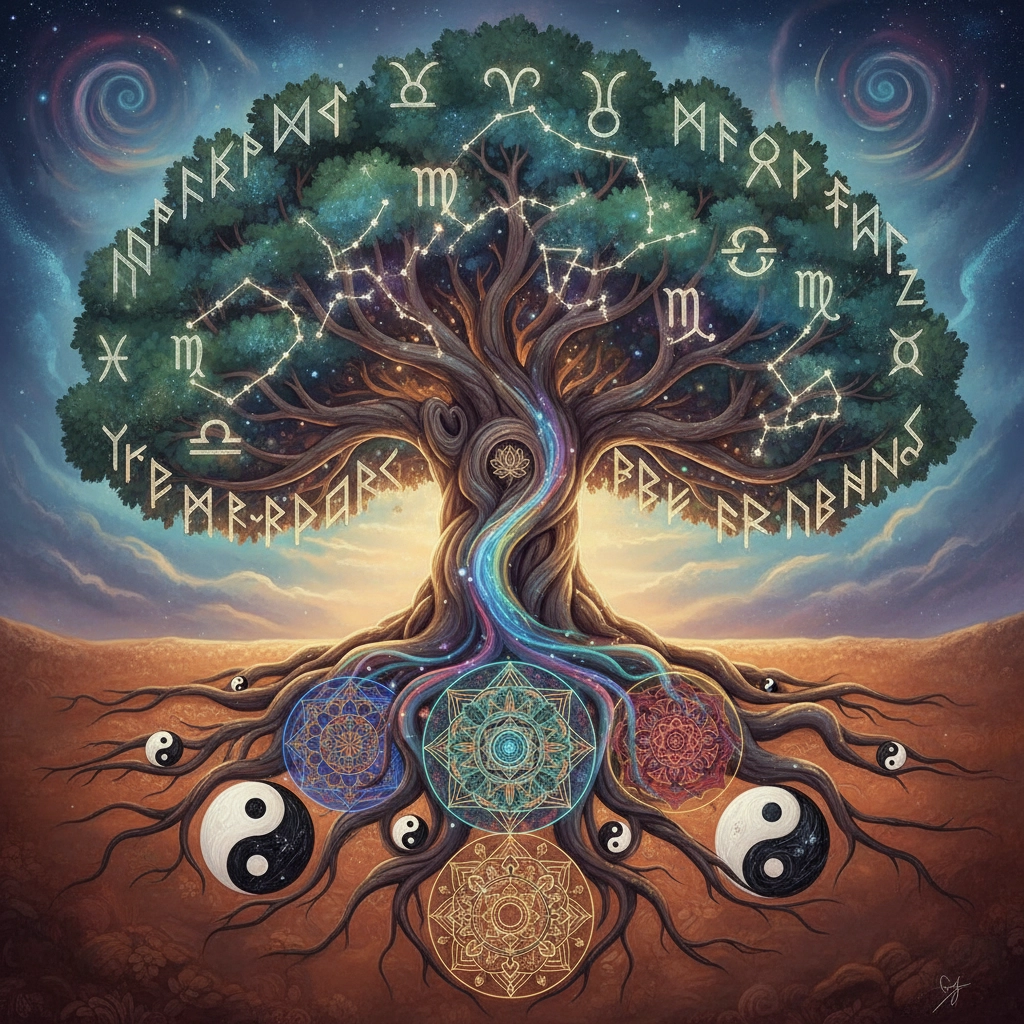
Quality Standardization Across All Sessions
AI systems trained by experienced practitioners maintain consistent interpretation quality. Each client receives professional-level readings regardless of the practitioner's current energy or mood.
The technology eliminates human variability factors like fatigue or personal biases. Standard interpretation protocols apply to all readings. Clients experience reliable service quality across all interactions.
24/7 Availability Changes Client Expectations
Clients adapt to immediate spiritual guidance availability. The expectation shifts from scheduled appointments to on-demand consultation access. This change affects how practitioners structure their services and pricing models.
Emergency guidance becomes possible. Clients facing urgent decisions access divination services immediately. This availability transforms divination from planned consultations to crisis support tools.
Cost Barriers Decrease Significantly
AI-assisted readings typically cost less than traditional one-on-one sessions. Lower pricing makes spiritual guidance accessible to broader demographics. Practitioners can offer various service tiers from basic AI readings to premium human consultation.
The technology reduces operational costs for practitioners. No physical location requirements exist for AI-assisted services. These savings translate to more affordable client pricing.
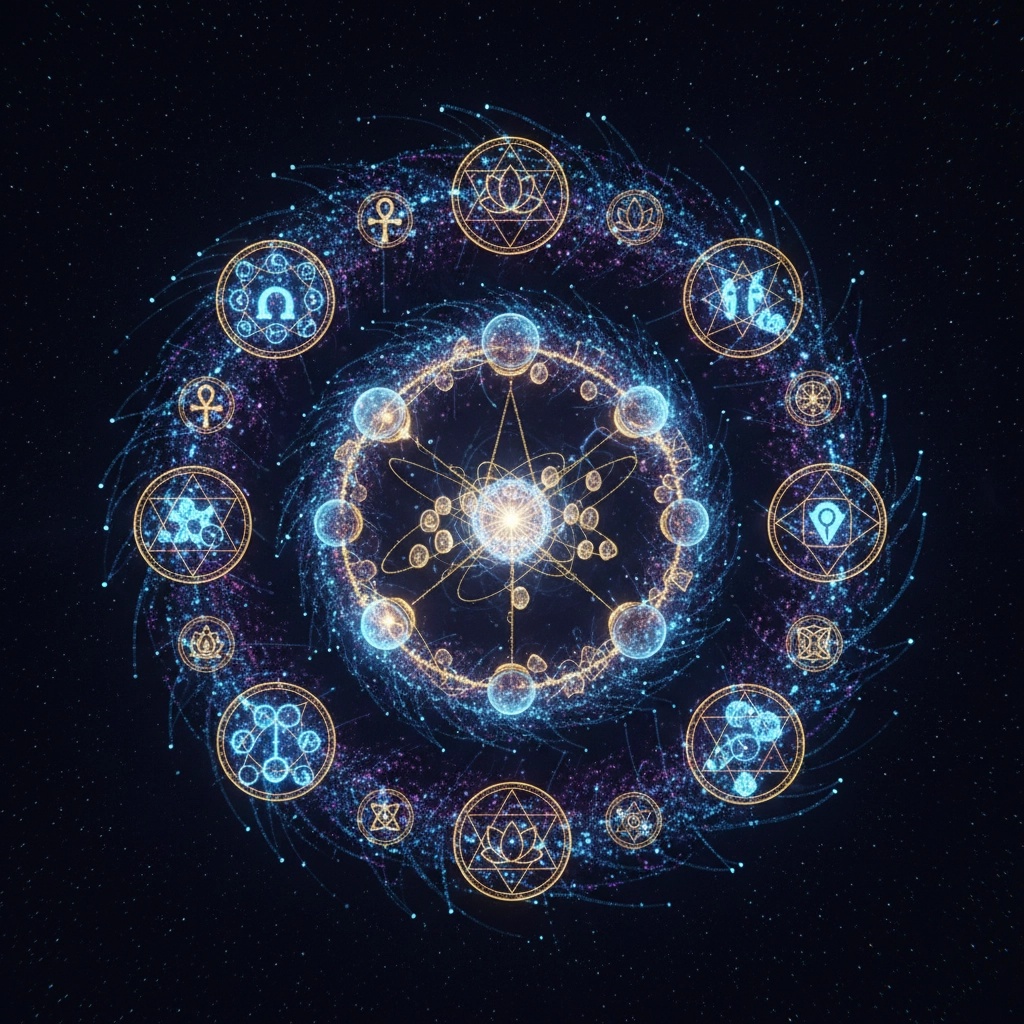
Training Requirements Shift
Practitioners need new skills to work with AI systems effectively. Traditional divination knowledge remains important, but technology integration becomes essential.
Understanding AI limitations and capabilities helps practitioners determine when human intervention is necessary. The training focus shifts from memorizing interpretations to managing human-AI collaboration.
Client Relationship Dynamics Transform
The practitioner-client relationship changes when AI handles initial consultations. Human practitioners become specialized consultants for complex cases rather than primary service providers.
Clients may develop relationships with AI systems before meeting human practitioners. This progression creates new client journey patterns. Practitioners adapt their approach to work with AI-influenced client expectations.
Data Insights Drive Service Improvements
AI systems generate consultation data that reveals client behavior patterns. Practitioners identify popular question types, timing preferences, and service gaps.
This information guides service development and marketing strategies. Understanding client needs through data analysis improves service offerings and business growth.

Integration Challenges Require Solutions
Combining traditional spiritual practices with AI technology presents implementation challenges. Practitioners must balance authenticity with technological convenience.
Some clients prefer exclusively human or exclusively AI consultations. Service offerings need flexibility to accommodate different preference groups. Clear communication about AI involvement prevents client confusion.
Future Service Evolution
AI-assisted divination represents the first step in spiritual service automation. Voice-activated readings and visual interpretation tools are developing rapidly.
Practitioners who integrate AI early gain competitive advantages. Late adopters may struggle to match the convenience and pricing of AI-enhanced services.
The technology will continue improving interpretation accuracy and cultural sensitivity. Regular system updates maintain relevance with changing spiritual practices and client needs.
Implementation Strategies
Start with basic AI tools for routine readings. Gradually expand technology use as comfort levels increase. Maintain human oversight for complex or sensitive consultations.
Test different AI platforms to find the best fit for your practice style. Client feedback helps determine optimal human-AI balance ratios.
Consider exploring existing AI-spiritual integration approaches to understand implementation possibilities.
The transformation is happening now. Practitioners who adapt their services to include AI assistance will serve clients more effectively while expanding their business potential. The technology supports rather than replaces human insight, creating new opportunities for spiritual service delivery.

